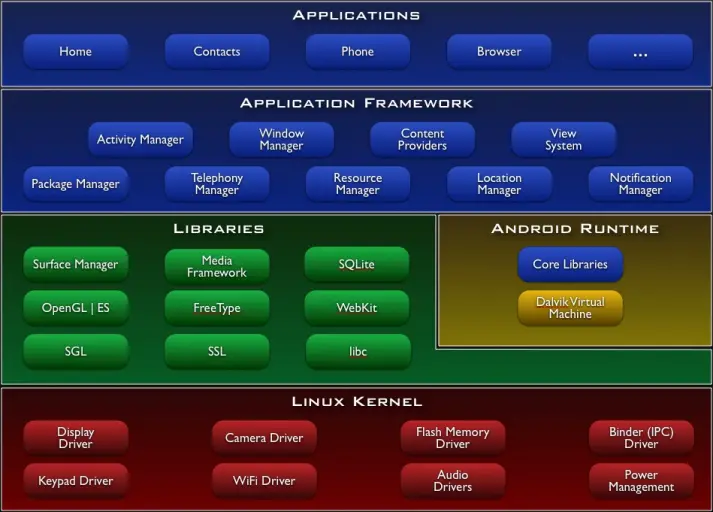- YES, Android uses a virtual machine (as do many other phone OSes), this is what allows Android to easily integrate with several different hardware manufacturers and still efficiently run its applications. Some may say - "the iPhone has control over the hardware, while Android is running wild, how does it stay efficiently stable?" Well this virtual machine is what does the trick.
This is similar to modern computing platforms (ie Windows, linux), you can install virtualization software which creates a kind of buffer layer between your applications and the hardware, allowing efficient control of resources along with "plug-n-play" usability - your guest OS or application no longer has to worry about drivers that run efficiently with your hardware, the virtualization software handles this in the background.

What does this mean for Android phones?? - well, it means they will run applications faster and use less battery - yeah!!! The JIT compiler allows the OS to kind of cache program code as it is processed, and speed it up when it is called in the future, this is a poor one liner explanation, so read more here if you like. There are now several JIT compilers in development for Android, shortly we should see stable releases of this new software. Here is a nice short article on one of the new JIT compilers.
In case you didnt know, Android is Google's mobile operating system that is found on a number of phones such as the Hero, Nexus One, Moment, Droid and many others; while it is not yet at the level of the iPhone OS, it is fast approaching, and often times considered the biggest competitor to the iPhone market. Android OS is currently on version 2.1, you can read more about it here.
No comments:
Post a Comment